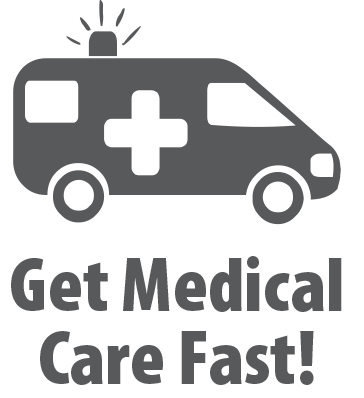Abdominal & Urinary Conditions
Diverticulosis & Diverticulitis

Diverticulosis in Colon
Sometimes small pouches bulge outward through weak spots in the colon. This is called diverticulosis. The pockets (called diverticula) can fill with intestinal waste. With diverticulitis, these pockets and areas around them get inflamed or infected.
Signs & Symptoms
For Diverticulosis
Often this has no symptoms. Some persons may have:
• Mild cramps.
• Bloating
• Constipation.
• Blood in the stool.
For Diverticulitis
• Severe cramping and bloating in the abdomen, usually on the lower left side. The pain is made worse with a bowel movement.
• Tenderness over the abdomen.
• Nausea.
• Fever.
Causes
A low fiber diet is thought to be the main cause. Constipation and overuse of laxatives may also play a role.
Treatment
Diverticulitis needs medical treatment. Diverticulosis can’t be cured, but self-care measures can reduce symptoms and prevent serious problems.
Questions to Ask
Question
01
Do you have any of these problems?
• Very severe abdominal pain.
• Signs of an intestinal obstruction: Inability to pass stool or even gas; mild fever and weakness; abdominal cramps that come and go; the abdomen gets more and more swollen with increasing pain; hiccups that don’t stop; and vomiting.
• Blood in the stool, tarlike, or maroon-colored stool.

Get medical care without delay. If symptoms are life threatening go to the ER or call 9-1-1. Don’t call 9-1-1 or use the ER if symptoms do not threaten life. Ask your doctor ahead of time where you should go for a problem that needs prompt care, but not emergency care.
x
Question
02
Do you have any of these problems?
• Changes in bowel habits last longer than 2 weeks.
• Tenderness, pain, mild cramping, or a bloated feeling. These are usually felt in the lower left side of the abdomen.
• Gas. Nausea. Constipation.
• Pain in the abdomen and a fever.

You should be seen by your doctor for medical advice. Contact your doctor or health care provider to find out how soon you should be seen.
x
Self-Care / Prevention
• Get regular exercise. Drink 1-1/2 to 2 quarts of water daily. Eat a diet high in fiber, but avoid foods that bother you (e.g., corn, nuts, etc.).
• Avoid the regular use of “stimulant” laxatives, such as Ex-Lax. Ask your doctor about taking bulk-forming laxatives like Metamucil.
• Try not to strain when you have bowel movements.

Download an offline pdf file.
RELATED ARTICLES
<
>
2021 © American Institute for Preventive Medicine - All Rights Reserved. Disclaimer | www.HealthyLife.com








